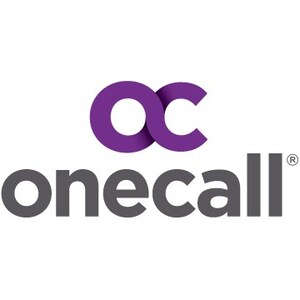
JACKSONVILLE, Fla., Nov. 9, 2021 /PRNewswire/ -- A new study found that Lean is a suitable methodology to accelerate patient recovery by reducing the time between on-the-job accidents and the beginning of physical therapy treatment. The study identified ways to address inefficiencies in the workers' compensation system and concluded that eliminating pre-authorization for physical therapy and the additional lead time it creates can improve health outcomes and reduce claim costs.
"Physical therapy plays a significant role in the treatment of most work-related injuries and drives medical and indemnity costs of workers' compensation claims," said Omar Taha, One Call senior director of continuous improvement and doctoral candidate in systems engineering at The George Washington University.
"Our findings corroborate that Lean is an effective methodology in identifying and removing administrative inefficiencies from the treatment process, which could accelerate patients' recovery, reduce administrative burden on healthcare providers, and improve the overall claim cost," said Taha.
Taha, in collaboration with his peers – Professor Thomas A. Mazzuchi from the Department of Engineering Management and Systems Engineering at The George Washington University, Professor Shahram Sarkani, director of the Department of Engineering Management and Systems Engineering at The George Washington University, Professor Jiju Antony, founder of the Centre for Research in Six Sigma and Process Excellence (CRISSPE) and author of three books and more than 200 peer-reviewed journal papers in this field, and Associate Professor Sandra Furterer, chair of the Department of Engineering Management, Systems, and Technology at the University of Dayton – designed and deployed multiple case studies to better understand the journey of an injured worker within the workers' compensation system.
"We are always excited to design and conduct studies that enable us to leverage systems engineering methodologies in different fields including the health care one," said Sarkani.
This study was in partnership with a leading national healthcare provider in the field of workers' compensation to conduct direct observations in five of their clinics across Florida and Pennsylvania. Researchers analyzed the data of 263 injured workers with eight or more physical therapy visits who were treated at clinics in both states over 31 days.
The research concluded activities associated with the pre-authorization of treatment were the primary non-value-added activity from the perspective of the injured worker based on delayed physical therapy treatment. Removing pre-authorization requirements could significantly reduce the lead time for treatment of injured workers. An injured worker could, for example, visit their referring physician and complete their first physical therapy session within the same office visit.
Half of the injured Pennsylvania workers in the researchers' dataset attended their first physical therapy treatment within less than a day of obtaining a prescription whereas injured Florida workers required more than five days. In Florida, injured workers needed an average of 39.58 days to complete eight physical therapy visits compared to only 27.92 days to complete the same number of visits in Pennsylvania, a median of 34.09 vs. 22.15 days. The disparity between the two states is likely due to Pennsylvania eliminating pre-authorization activities, according to the study.
"Patterns emerged that showed inefficiencies in the information flow between insurance companies, referring care providers, and treatment care providers," said Mazzuchi. "This negatively impacts the delivery of care for injured workers."
This was the first study to apply Lean methodology to workers' compensation. The paper titled "Uncovering inefficiencies in the workers' compensation industry using Lean methodology" was published in The TQM Journal.
"Lean has proven its effectiveness as a continuous improvement methodology across many industries, and it's about time to apply it to the workers' compensation industry," said Antony. Further research using Lean methodology in workers' compensation could play a critical role in identifying and quantifying continuous improvement opportunities, ensuring people get the care they need when they need it. To access the full paper contact Omar Taha at: [email protected].
About One Call
As a leader in the workers' compensation industry and ancillary services for Medicare and Medicaid, One Call has an unwavering commitment to getting people the care they need, when they need it. Leveraging more than 30 years of industry experience and innovative solutions, we are moving people through their care journeys better than ever before, providing exceptional, predictive, and responsive care coordination. For more information and the latest news, visit us at onecallcm.com, LinkedIn, Facebook, and Twitter.
Media Contact:
Jessica Taft
One Call, Vice President, Marketing and Branding
[email protected]
SOURCE One Call







Share this article